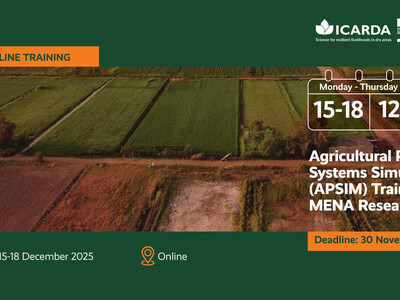First Regional Conference 'Improving water productivity in agriculture'
December 01 – 03. Cairo. 1st Edition of the international conference on FNSSA.
Producing more food with less water is a straightforward objective that could be realized through using better production practices. However, in the context of the restrictions that scarcity necessitates, using water to get ‘more crop per drop’, while certainly an important task, is not sufficient to put agriculture on the track of sustainability. The challenge is in achieving an overall optimum in using the little water available. Clarification of the WP concept in its different dimensions - economic, social and environmental – has become urgently needed for the effective implementation of collaborative actions.
The FAO regional project “Implementing the 2030 Agenda on Water Efficiency, Productivity and Sustainability in the NENA Countries” is a major contribution in responding to the countries’ expectations. Funded by the Swedish Cooperation (SIDA), the project includes components on water accounting, water productivity, the water-agriculture-energy Nexus and communications for impact.
The aim of the conference is to bring together experts working on improving water productivity from different perspectives to debate how WP improvements can reinforce agriculture sustainability as well as promoting economic development, maintaining social stability and protecting the environment in rural areas and cities.
Themes
The conference will bring science and policy together in order to review the status of water productivity, the challenges and innovative solutions.
The conference will focus on three main themes:
- Improving water productivity: progress made and innovations proposed to bridge the Water Productivity Gap
- Measuring water productivity and monitoring performance for sustainability
- Effectively communicating the benefits of water productivity
Expected Output
The main conference output will be a document highlighting the scientific evidence on the status of water productivity in the NENA Region. The document will also highlights innovations and recommendation for bridging the water productivity gaps while developing sound environmental and social policies for sustainable agriculture programs.

